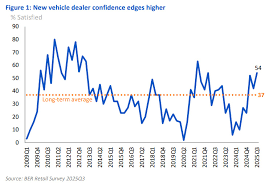Importance of Retail Confidence
Retail confidence is a crucial indicator of economic health, reflecting consumer sentiment and spending patterns. In South Africa, the retail sector plays a vital role in employment and GDP growth. A decline in retail confidence can signal broader economic issues, such as reduced consumer spending or increased operational challenges for businesses. Recent trends indicate a notable downturn in this vital sector, raising concerns among economists and retailers alike.
Details of the Confidence Decline
According to the latest data released by the South African Chamber of Commerce and Industry (SACCI), retail confidence in South Africa has dropped to its lowest levels in nearly two years. The retail confidence index fell by 12 points to 65, falling below the critical benchmark of 70. This decline is attributed to a combination of factors including rising inflation, fuel prices, and supply chain disruptions that have plagued the economy over recent months.
Concerns over the economic outlook are heightened as inflation rates hover around 7%, a level that constrains consumer purchasing power. Furthermore, recent strikes in key industries have intensified supply chain issues, limiting the availability of goods and leading to stock-outs in various retail outlets. Notably, large retailers, which typically act as barometers for consumer confidence, are reporting decreased foot traffic and lower sales volumes during peak shopping periods.
Implications for the Future
Industry experts warn that if the trend persists, it could lead to significant layoffs and a contraction in the retail sector, impacting overall job creation and economic stability. Furthermore, this downturn could dampen investor sentiment, potentially affecting foreign investment opportunities in South Africa.
Despite these challenges, some analysts remain cautiously optimistic, suggesting that improved economic policies and interventions from the government could help reverse this trend. Initiatives aimed at stabilizing inflation and promoting local manufacturing may bolster consumer confidence moving forward.
Conclusion
The decline in retail confidence in South Africa is a multifaceted issue with significant implications for the economy. As consumers tighten their belts, retailers must adapt to the changing landscape. Policymakers also have a crucial role in implementing measures that can restore confidence and stimulate growth in the sector. Close monitoring of these developments will be essential for business leaders and consumers alike as they navigate this challenging economic environment.


